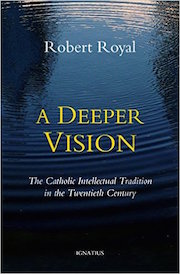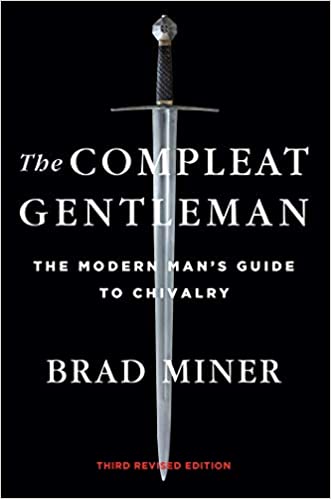Tomorrow, June 20, marks the 2024 summer solstice, the longest day of the year. Nobody really cares about the solstice today except wannabe pagans, but it’s the official start of summer. And summer is an excuse for the kind of escapist reading that (seemingly) has nothing to do with the burdens of modern life, yet can offer some useful lessons. I’ll explain.
Some years ago a priest friend urged me to read the “Shardlake” crime mysteries, set in 16th-Century England and written by the late C.J. Sansom. Creating good historical fiction is hard work. Few authors do it really well, and too many Tudor-era stories are ridiculous bodice-rippers. But my wife promptly read all seven of the Sansom tales. . .twice, and my priest friend was right. They’re terrific.
They’re also instructive. Tudor politics helped shape the modern Anglophone world. Sansom’s historical research is superb. And the Shardlake tales have zero bodice-ripping. The appeal of the stories lies elsewhere.
Matthew Shardlake – a hunchbacked, highly intelligent, successful attorney in Tudor London – is the main character in all seven novels. Unmarried and the butt of frequent derision because of his disability, he has exceptional investigative skills. This makes him a useful, if expendable – and mostly unwilling – tool for leading figures of the Henry VIII monarchy.
What makes the Shardlake stories interesting for Catholics is the portrait that emerges of the peculiarly English Reformation – eccentric, bloody, and rife with intrigue – which vacillated between a kind of “Catholicism without the pope” and more radical Protestant thought.
The tales begin in the wake of Henry VIII’s break from Rome and the executions of Thomas More and Bishop John Fisher (whose joint memorial falls on June 22), and Anne Boleyn.
Shardlake is a man of impeccable character; a former Protestant zealot and no friend of papist views. But he’s appalled by the burning of heretics; disillusioned by the bitter divisions he sees among self-described Christians; and repelled by the hypocrisy of the realm’s powerful figures in using religion for political purposes and personal gain.
The author captures the daily texture and religious confusion of Tudor-era life with extraordinary vividness. And Shardlake himself is a complex, expertly drawn character. The result is a compulsively absorbing read, and a great – if selective – lesson in history.

So much for the book review. What’s any of this got to do the issues we face here and now? Well, just this.
History matters because the past shapes the present; so it’s helpful to remember it accurately. Critics tend to portray Thomas More, for example, as a conservative religious fanatic eager to hunt down and burn heretics. And it’s true that, as England’s Lord Chancellor, More oversaw six such burnings, three of which had his direct involvement. But he was hardly alone in his era’s gruesome religious turmoil; more than 80 heretics were burned during Henry VIII’s reign, including those after his break from Rome.
Queen Mary Tudor (“Bloody Mary”) later burned more than 280 Protestants for heresy during the Catholic Restoration. And “Good Queen Bess” – Elizabeth Tudor – authorized more than 180 executions of Catholics (for “treason,” the cover for anti-Catholic persecution) in England’s final turn to the Protestant cause.
Meanwhile, in a reformed Protestant Scotland, starting in 1563 and continuing through the early 18th century, as many as 6,000 persons, mostly women, were tried for witchcraft. Some 1,500 were executed, usually by strangulation and burning.
Such were the times, and the modern revulsion for violence committed in the name of God – whether Christian, Muslim, or other – is well warranted. The early seeds of that revulsion are very much alive in Sansom’s Matthew Shardlake.
Before we give ourselves a round of applause for how enlightened and “civilized” we are today, though, we might profitably remember the 300,000 mentally disabled and physically infirm persons, plus the 6 million Jews, murdered much more recently by the Third Reich. Or the Turkish genocide of Armenian Christians in the last century.
Or the scores of millions starved, shot, or butchered by Marxist-inspired ideologies in the former Soviet Union and East Bloc, Mao’s China, Pol Pot’s Cambodia, and a psychotic regime in North Korea. Or the grotesque, industrial-scale abortion machine and its attendant media parrots operating here at home, right now. Or the systematic Jew-hatred of Hamas, Iran, and Hezbollah.
The human species has an equal capacity for unselfish love and horrific sin. Nothing, outside a humble and repentant faith in God, immunizes our own country, our own times, and our own selves from that reality.
In practice, much of modern politics and science is simply a disguised form of idolatry, a gnostic religion without the irritating baggage of a personal God who’s involved in human affairs; who loves us, guarantees our dignity. . .and also holds us accountable for our treatment of each other. The result very easily leads to catastrophe.
Henri de Lubac, the great French Catholic theologian of the last century, observed about our own fractured age (in thoughts collected here), that “the denser the ignorance, the more enlightened it thinks itself to be.”
We moderns may imagine “that tolerance is making progress. What we don’t realize is that a new intolerance has taken the place of the old one.” Hatred of perceived heretics, he said, is actually thriving today. We’ve simply “turned it against [our] political adversaries. . . .Sectarianism has only changed its object and taken other forms.” In other words, when it comes to the basics of human nature, the 16th and 21st centuries aren’t so very different.
Truth does matter – profoundly. So does defending it from error. But given our imperfections, conflicts about human purpose and destiny will inevitably happen. As St. Paul wrote, our duty is to speak the truth with love, and to act with the kind of respect for others that love demands. The alternative is the poisonous politics, infected by diseased zealotry, we have in 2024.
Master Shardlake’s wardrobe, were he here today, would need an update. But he might feel right at home.















